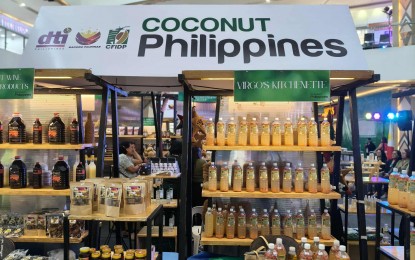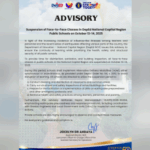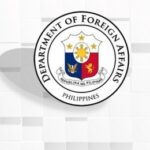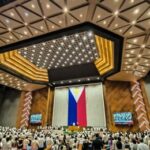TACLOBAN CITY – Some 30 farmer-entrepreneurs from six provinces of Eastern Visayas on Friday joined the first-ever regional trade fair featuring coconut-based products.
Led by the Department of Trade and Industry (DTI) regional office, the Eastern Visayas Regional Coconut Trade Fair at Robinsons Place was held in partnership with the Philippine Coconut Authority (PCA) and the Agricultural Training Institute (ATI).
Exhibitors included micro, small, and medium enterprises (MSMEs) supported under the Coconut Farmers and Industry Development Plan program.
“We are committed to helping coconut farmers and processors succeed in today’s competitive environment. Our goal is to bridge the gap from farm to shelves, from local communities to the global market,” the DTI Regional Director stated during the trade fair’s opening.
The official added that their agency continues to assist coconut-based producers in improving their products, exploring new market opportunities, and sharing their success stories globally.
Coconut-based products showcased at the fair included coconut vinegar, coconut wine, virgin coconut oil, coconut coir, coconut shell handicrafts, accessories, souvenir items, coconut-based food, and more.
“We encourage exhibitors to explore innovative ways to present coconut-based products to the market,” the director said.
Seven coconut-based products from the region will have the opportunity to participate in an international trade fair in Japan this September.
One producer from Talalora town—Axel Integrated Farming—will soon export its products to Australia, the United States, and Europe after securing trade partnerships during the “Flavor Finds” event at the International Food Exhibition held last May in Metro Manila.
The Eastern Visayas Regional Coconut Trade Fair will run until August 10 with a sales target of PHP1.5 million.
Eastern Visayas Regional Coconut Trade Fair
The **Eastern Visayas Regional Coconut Trade Fair** is an annual event in the Philippines that showcases the region’s coconut-based products, promoting local farmers, entrepreneurs, and the coconut industry. It highlights Eastern Visayas’ role as a key coconut-producing area, featuring trade exhibits, product demonstrations, and cultural performances. The fair supports economic growth by connecting producers with buyers and preserving traditional coconut-related crafts and innovations.
Robinsons Place
Robinsons Place is a major chain of shopping malls in the Philippines, owned by Robinsons Land Corporation. The first Robinsons Mall opened in 1980 in Manila and has since expanded to multiple locations nationwide, offering retail, dining, and entertainment options. The malls are named after John Gokongwei Jr.’s company, which honors his mentor, Joseph H. Robinsons.
Department of Trade and Industry (DTI)
The **Department of Trade and Industry (DTI)** is a government agency responsible for promoting economic growth, trade, and industrial development in many countries, including the Philippines and South Africa. Established to regulate commerce, support businesses, and enhance competitiveness, it plays a key role in shaping national economic policies. Its history varies by country but often dates back to the early or mid-20th century as part of industrialization efforts.
Philippine Coconut Authority (PCA)
The **Philippine Coconut Authority (PCA)** is a government agency established in 1973 to promote the development of the coconut industry, a vital sector in the Philippines’ economy. It oversees research, production, and marketing of coconut products, supporting millions of farmers. The PCA also played a key role in rehabilitating the industry after major challenges like typhoons and pests.
Agricultural Training Institute (ATI)
The **Agricultural Training Institute (ATI)** is a government agency in the Philippines dedicated to providing agricultural extension services and training programs for farmers, rural youth, and agricultural professionals. Established in 1987 under the Department of Agriculture, ATI promotes sustainable farming practices, technology transfer, and rural development to enhance agricultural productivity and livelihoods. It operates nationwide through regional training centers, offering workshops, demonstrations, and capacity-building initiatives.
Coconut Farmers and Industry Development Plan
The **Coconut Farmers and Industry Development Plan (CFIDP)** is a strategic initiative, often implemented in coconut-producing countries like the Philippines, aimed at boosting the productivity and sustainability of the coconut farming sector. It focuses on modernizing farming practices, supporting smallholder farmers, and promoting value-added coconut products to enhance livelihoods and industry growth. Historically, such plans emerge in response to challenges like aging coconut trees, low yields, and the need for economic diversification in rural communities.
Flavor Finds
“Flavor Finds” is a vibrant culinary destination or event that celebrates diverse food cultures, often featuring local and international vendors, chefs, or food artisans. While specific historical details may vary, such initiatives typically emerge to promote food diversity, support small businesses, and create community engagement through shared dining experiences. They may also highlight historical or regional cooking traditions, offering visitors a taste of heritage and innovation.
(Note: If “Flavor Finds” refers to a specific establishment or festival, additional context would help tailor the summary.)
International Food Exhibition
The **International Food Exhibition** is a global event showcasing diverse cuisines, culinary innovations, and food cultures from around the world. Historically, such exhibitions have served as platforms for trade, cultural exchange, and the promotion of gastronomic trends, often dating back to 19th-century world fairs. Today, they attract chefs, producers, and food enthusiasts, fostering international collaboration in the food industry.






